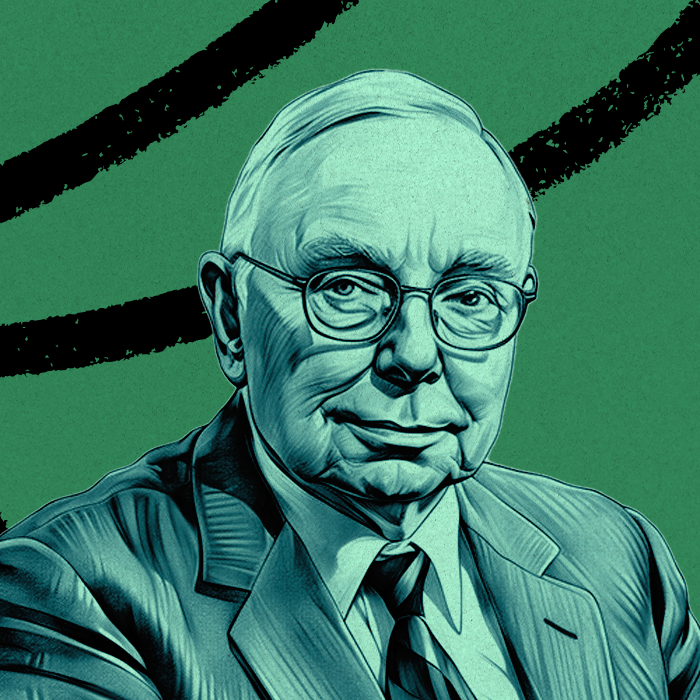
Sponsored By: Hubspot
This essay is brought to you by Hubspot. Revolutionize your workflow with 10 glorious Google Sheets templates, tailor-made for entrepreneurs and versatile marketers. From organizing your blog's editorial calendar to mastering paid media strategies and optimizing on-page SEO, these ready-to-use spreadsheets are here to make a difference. Be the change you wish to see in your spreadsheet.
I have a confession to make: I’m a biography bro. Folks like me read books galore on the famous and powerful, trying to divine the secret to these fabled individuals' success. On my shelf sit volumes on everyone from Mozart to Martin Luther King to Robert Moses. I have written book reviews in which titans of industry espouse their philosophies. After all, it is fun to learn how others came to make more money than me.
However, I worry that people have gotten a smidge ahead of themselves. In a recent conversation, a founder of a B2B SaaS company said to me in earnest that “reading about how Napoleon conquered Europe helped him run his company.” He’s not alone: there are podcasts and workshops, study groups and Substacks, all of them devoted to the discipline of the powerful. It is a harmless hobby, but it is a funny one.
When Charlie Munger, the spiritual progenitor of the biography bro movement, died last week at 99, X was filled with hagiographies lionizing his legacy. The last week has bordered on—if not outright descended into—a period of spiritual mourning for Mungerites.
His philosophy is appealing, and his riches are undeniable. Munger, who had an estimated net worth of $2.3 billion, was the intellectual sparring partner of Warren Buffett, estimated net worth of $120 billion—and Munger, somehow, was noble enough not to murder Buffett over this difference in assets. Together they built Berkshire Hathaway, which has a market cap of roughly $775 billion. Not too shabby.
The key to his success? Mental models that are built by reading widely. To espouse his philosophy of success, 18 years ago he published Poor Charlie’s Almanac, a book of his teachings, that has been re-issued by Stripe Press. The whole thing is an ode to be being multi-disciplinary and widely read:
“You can’t really know anything if you just remember isolated facts and try and bang ’em back. If the facts don’t hang together on a latticework of theory, you don’t have them in a usable form. You’ve got to have models in your head. And you’ve got to array your experience—both vicarious and direct—on this latticework of models.”
Munger drew from the world’s well of knowledge to construct his models. In the reading list that accompanied the new edition, he included four biographies, and recent visitors to his home described shelves stuffed with profiles of the powerful. He, of course, read beyond this, with interests in psychology, mathematics, and biology.
And Munger’s own book is a repository of wisdom that argues for a distinct, pragmatic worldview. Many of my friends talk, at length, about how his writing has changed their lives.
I’ve read his book, done like Munger has done. The trademark wit and gumption he brought to his writing, with memorable lines like “being a one-legged man in an ass-kicking contest,” will be long lasting.
But I have a problem. I have absolutely no idea how to do what Munger says.
Munger’s method to getting rich
Munger’s perspective can be boiled down into five steps:
- To be a successful professional, you must be a multidisciplinary consumer of information.
- So, read a lot of books about smart dude stuff.
- Using all that reading, build many mental models.
- Use mental models to evaluate opportunities, only saying yes when it’s clear that an opportunity can be profitable for multiple decades.
- Be patient and repeat this process until you die.
This is sort of a finance horoscope. It is both specific enough to feel like it's meant for you and general enough to make everyone feel like it was written for them. The philosophy has the strongest appeal for widely read generalists. Read enough books, make enough mental models, and you will get rich.
I will admit to being slightly snookered by this process. I love to read. I also love the idea of betting on quality companies and then watching their value accrue for a decade.
Unfortunately, the primary issue is the mental models themselves. In the book, Munger argues that “80 or 90 important models will carry about 90 percent of the freight in making you a worldly-wise person. And, of those, only a mere handful really carry very heavy weight.”
Let that simmer for a second. Munger is suggesting that you should run every major decision—Munger’s were investment opportunities, yours might be career or partner decisions—through your really important models. Then, once they pass those models, run your decisions through the remaining 85 or so models. That is… not even slightly reasonable. Many choices we have to make are severely time-constrained, based on murky data at best. Most folks simply don’t have the bandwidth to analyze each major choice through the lens of all these models.
The Only Subscription
You Need to
Stay at the
Edge of AI
The essential toolkit for those shaping the future
"This might be the best value you
can get from an AI subscription."
- Jay S.
Join 100,000+ leaders, builders, and innovators

Email address
Already have an account? Sign in
What is included in a subscription?
Daily insights from AI pioneers + early access to powerful AI tools










Comments
Don't have an account? Sign up!
Good stuff. This whole area of chasing wealth/success by picking heroes has always felt limited to me. Further to what you outlined I also think trying to emulate successful people by doing what they *say* they did likely has significant limits on its potential for actual success in that goal. If you could study them from the outside and avoid their own biases and blinders about their good and bad qualities, it might tell you something more. But in the end you're right that one's ability to actually emulate is limited, even with perfect information on how someone achieved their success.
Regarding AI and the Munger3000 that might relatively soon be widely available, I'm particularly curious to know how you think this might affect *how the market works*? How things are valued, etc. In theory it should get us closer to the idealized market of "perfectly informed economic actors" and thus might make the market run better/smoother, right? Maybe even act as a stabilizing counter-force to the high speed trading revolution that occurred some years ago... But what's your take?
@Oshyan couple things on the market side. Alpha isn't just found in pricing, but in access and speed. Many hedge funds already trade using machine learning, so layering in LLM trades doesn't feel unreasonable. It'll likely end up exaggerating the winner take most dynamics for most types of assets.
@ItsUrBoyEvan Damn, I really hoped that *wouldn't* be the case. 😄 My angle was that giving access to AI-driven trading to basically everyone could be a leveler. It would almost certainly work differently than current ML and high speed trading because they're mostly unavailable to the general public, at least at the highest levels.
Of course you could argue that the bigger players will have better AI, and that's probably true. But I'm pretty confident that the distance between the average person and a perfect trader is much greater than the same distance for a current top-level market player. The dominant players go from 95% perfect to 97% or even 99%, great, but the vast, uninformed masses *could* go from say 30% to 70% (totally made-up numbers, but most people have no idea how to pick stocks well, time a trade well, etc.).
Of course many people are invested in funds anyway, so they're already effectively participating as high level players, collectively (in that fund). So I guess my theory depends on how many amateur traders in the open market there are (people picking stocks, doing day trades, etc., i.e. not primarily in managed asset pools) and what volume of the market they influence.
It was definitely a hot take, not fully thought out. But it still feels like there is a nugget of potential interest there. 🤔